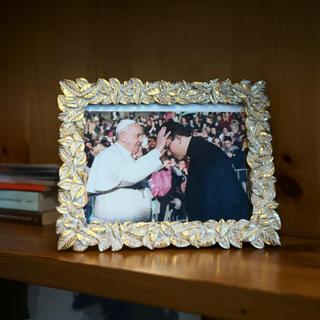


To Italians, Pope Francis was a 'pope of the poor' and a paradoxical ally of progressives
FeatureClose to the most poorest and to migrants, Pope Francis reconciled a segment of the Italian left with the papacy, while others criticized him for his lack of courage on the issue of sexual violence.
With the Easter holidays came the fine weather, and this time of year is when Umberto Tiberi, 87, can comfortably set up his plastic chair in front of his small café in the Tor Bella Monaca suburb, at the far edges of the Italian capital. The weather was nice, with spring settling in, but for this former chemical industry worker who opened his Bar Italia after many years in Germany, there was something sad in the air.
The day before, on Monday, April 21, Pope Francis passed away at the age of 88. "He was the pope of the poor! Francis loved to simply be among us... a human pope. We will miss him greatly," lamented Tiberi. As the head of the Catholic Church, the pontiff was also the bishop of Rome, and globally as well as in his diocese, Francis said he gave priority to the peripheries and those who inhabit them.
In Italian, the term "periphery" quite literally refers to the suburbs of major cities, like Tor Bella Monaca, whose streamlined public buildings with their worn-out facades are situated 15 kilometers from Saint Peter's Square – a 90-minute journey by public transport.
Like other residents of a neighborhood he describes as suffering from a "bad reputation," Tiberi fondly remembers March 8, 2015, the day Pope Francis visited them at the beginning of his pontificate to give a mass at the Church of Santa Maria Madre del Redentore. Nearby, this imposing modern building with a pagoda-like appearance, built in the 1980s, stands out among a supermarket, apartment blocks and a public garden with uncultivated grass.
'Suburban residents felt loved'
You have 76.9% of this article left to read. The rest is for subscribers only.
